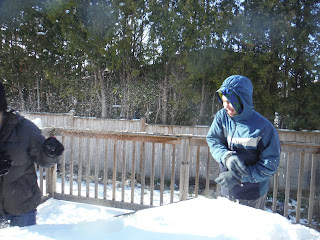We’ve all heard the joke- when my children were little, I, the parent, was brilliant. When they were teenagers, I was suddenly an imbecile. Now that they’re getting older, I seem to be getting smarter again. It’s true. I remember the day I lost all credibility. My eldest was a preteen. He was studying Humash, and said something incorrect. My husband and I, both rabbis, corrected him. “No,” he insisted, “that’s not what me teacher said.” We pointed out the mistake in the text. Still, he insisted the teacher, not a Torah scholar, was correct. I gave up, and emailed the teacher. In my son’s eyes, I no longer knew what I was talking about.
It swings the other way too. As a teen and as a young adult, I was fired up about so many things. I knew the world could be a better place if people just listened, if not to me, then to the experts all around. I could listen patiently (more so than my own children usually do), and then explain exactly what needed to be done.
Recycle More.
Use less energy.
Create a US national service to serve rural and inner city areas in many needed ways.
Never negotiate with terrorists.
Life now is different. I’m not old, yet I am twice the age I was when I knew everything. Although I am still very much the idealist I once was, my mind is filled with wonder instead of answers. Now I have questions, where before I had passion. Here are just a few:
· Why do we insist on trying to convince people about climate change? As we say in Hebrew, mi she'yavin, meivin. That is, those that understand, understand. The others will never come around. So why don’t we work on a universal idea, one everyone can agree upon? Pollution is bad. I like to breathe. You like to breathe. Smog is bad. Now, how do we clean this up and prevent new pollution together?
· Why do industries like big tobacco persist? Why are we willing to sacrifice others for a little extra in our pocketbook?
· Why do we allow time freed up by so-called time saving devices to be poured back into work instead of the family and social time they were supposed to create?
Yes, I know some of the answers come down to a double standard. Many come down to selfishness. I like things to be easy too. I like to pay less, but get more.
I also know I am an idealist. I do sometimes use disposable plates, but stick with recycled and recyclable ones. I also invested in inexpensive plastic to use when we’re on the go. It means I need a place to keep them. It means I need to wash them on site or have something to put dirty dishes into to protect everything around them. That’s a benefit of the salary I make. I also know I make less because I chose a job for “unnatural” reasons. When I left my last job, it was to take care of my family. I was on a path upwards, but it required time I didn’t feel I had or wanted to give. When I went back to work, it was in a job I love, but one that is part-time. There are frustrations. There’s always too much to be done. We simply don’t have enough working hours. Sean and I cook all our meals. That means from actual ingredients. There’s no quick rice or frozen meals. There are few canned goods. It takes a long time to prepare a meal from scratch. Nothing is easy. But the effort makes it more important. Even with three teens in the house, we eat as a family. The chef does not have to do the dishes. (The dishwasher must not run the water continuously.) The kids sometimes whine. They should. It’s part of the teen language. But, they also follow through. We talk. We share.
I have a garden. I have a compost heap. Even when I couldn’t plant because of sciatica, we had plants in pots. My children know what a tomato should taste like. We try to buy local. It’s not a perfect system. Kashrut means not all things are available from local sources. We love bananas and chocolate. Neither grow in a 100 mile radius diet. We buy local and we buy Israel, a seeming contradiction. Whoever said humans were logical? I’d rather pay a little more for something made with safe materials from workers treated fairly. But, bargain-hunting is a draw. It’s a challenge to balance. Sometimes we teeter in the wrong direction. That’s just being human.
My current question- (oft made fun of, but true in spirit) Why can't we all just get along? I don't have an answer.






